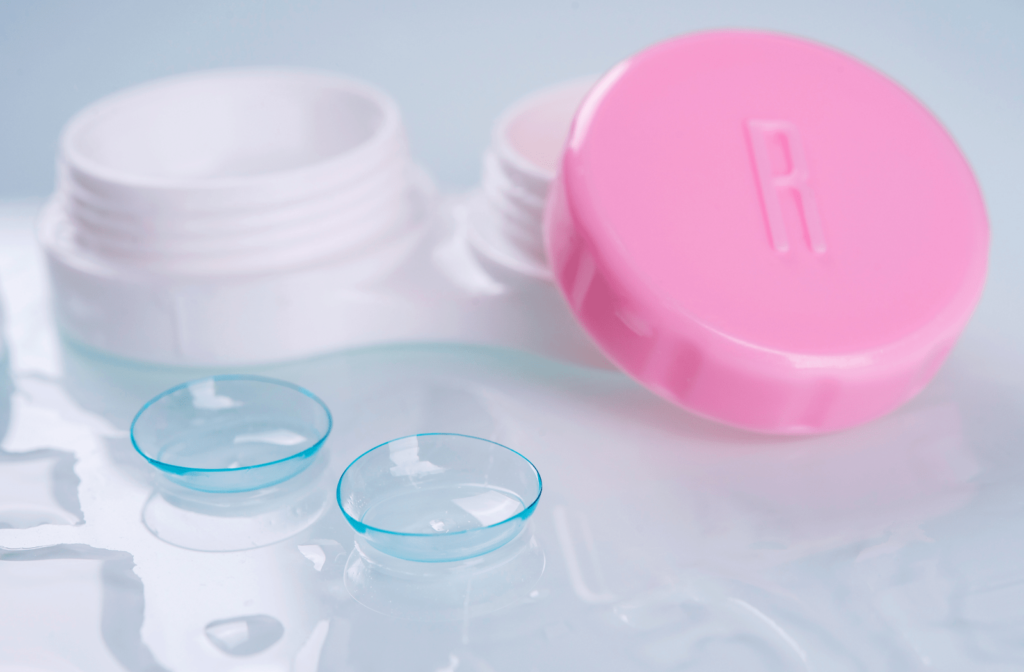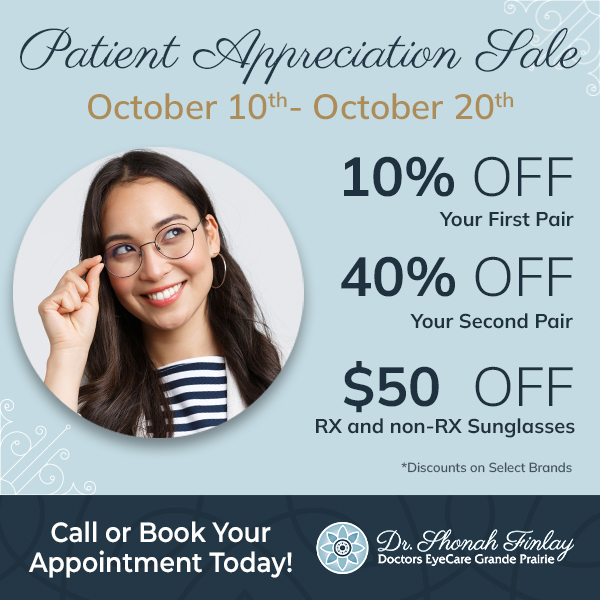Dry eye disease is a common condition that can make your eyes feel scratchy, irritated, and uncomfortable. While dry eye disease can be treated with dry eye therapy, the symptoms can sometimes make wearing contacts difficult. In some cases, wearing contact lenses may even make your symptoms worse.
So what can you do if you have dry eyes and want to wear contact lenses? Keep reading to learn more about dry eye disease, which contacts are best for dry eyes, and how your optometrist can help you find the right pair for you.
What is Dry Eye Disease?
Dry eye disease is an eye condition that happens when your eyes don’t produce enough tears, or the tears they do produce are low quality.
Your tears are made of three layers, an oily layer, an aqueous layer, and a mucous layer. Each of these three layers is essential in ensuring your tears are healthy enough to keep your eyes moist and comfortable. If there is an issue with any of these layers, it can lead to two different types of dry eye disease.
What are the 2 Types of Dry Eye Disease?
The two types of dry eye disease include:
- Evaporative dry eye is the most common type of dry eye disease. This type of dry eye occurs when your tears lack the proper amount of the oil layer, causing your tears to evaporate too quickly.
- Aqueous tear deficiency occurs when your eyes aren’t producing enough of the aqueous layer in your tears to keep the eye’s surface moist.
What are the Symptoms of Dry Eye Disease?
If you are suffering from dry eye disease, you may notice any of the following symptoms:
- A burning or scratchy sensation in your eyes
- Stringy mucus in or around your eyes
- Irritated or overly-watery eyes
- Sensitivity to light or photophobia
- Eye redness, blurred vision, or eye fatigue
- A sensation of having something in your eyes
- Difficulty wearing contact lenses
Do You Have Dry Eyes? Get an Eye Exam
Only your optometrist can determine if the symptoms you’re experiencing are caused by dry eye disease.
During an eye exam, your eye doctor will perform a series of tests to evaluate your tears. These tests include:
- A slit lamp test to see if your eyes are making enough tears
- A Schirmer’s test to determine the moisture content of your eyes
- A tear breakup time test to check how long your tear film lasts after you blink
With the results of these tests, your optometrist can determine if you have dry eye disease and what type of dry eye disease you have to find the most suitable treatment option for your needs.
What Causes Dry Eye?
If you’re experiencing dry eye symptoms, it’s essential to get an eye exam. During an eye exam, your doctor will ask you several lifestyle questions in addition to examining your eyes to determine the root cause of your conditions.
Several factors could be contributing to your dry eyes, including:
- Medical procedures, such as laser eye surgery
- Certain medications, such as antihistamines or antidepressants
- Long-term contact lens wear
- Prolonged screen use
- Dehydration
- Windy or dry environments
The cause of your symptoms can affect which contact lenses suit you. Once your optometrists know more about your individual needs, they can help determine which contact lenses would be best for your comfort.
Dry Eye Disease & Contact Lenses
There are many different types of contact lenses available, but not all of them will be comfortable to wear if you’re experiencing dry eyes.
If you suffer from dry eye, we typically recommend daily contact lenses or a special type of rigid gas permeable lenses called scleral lenses.
Daily Contact Lenses
We recommend daily contact lenses for patients with dry eyes for a couple of reasons:
- Daily contact lenses are switched every day, which means there’s a lower chance of protein, bacteria, and allergens building up in your eyes.
- These lenses typically include a wetting agent, which can give your eyes the moisture they need and decrease irritating symptoms.
- Daily contact lenses are more gentle on the eyes compared to other lenses, so they can be more comfortable to wear with dry eyes.
Scleral Contact Lenses
Scleral contact lenses are specially designed for patients with dry eyes, cornea issues, or hard-to-fit eyes.
Scleral lenses are made to avoid touching the cornea of the eye, which can decrease any irritation you feel. These lenses also have a fluid reservoir between the eye and the contact lens, providing additional hydration for the eye.
The Importance of Contact Lens Exams & Fittings
If you have dry eye disease and want to wear contacts, you’ll need a contact lens exam and fitting. During a contact lens exam, your optometrist will take specific measurements of your eyes to find the right contact lenses for you.
A contact lens exam ensures that your contacts help you see clearly while being comfortable.
We Can Help You Find the Right Contacts
While some contact lenses can exacerbate dry eye symptoms, it doesn’t mean you won’t be able to wear them. Our experienced team at Dr. Shonah Finlay Doctors Eye Care can help you find a suitable pair to get you back to seeing clearly and comfortably.
With dry eye therapy and the right pair of contact lenses, our team can help you find relief. Book an appointment today!




